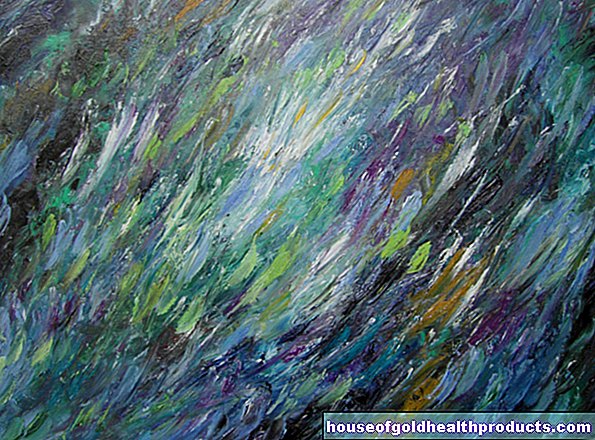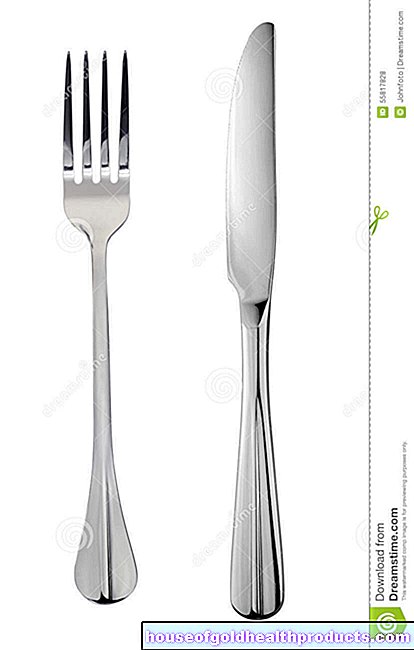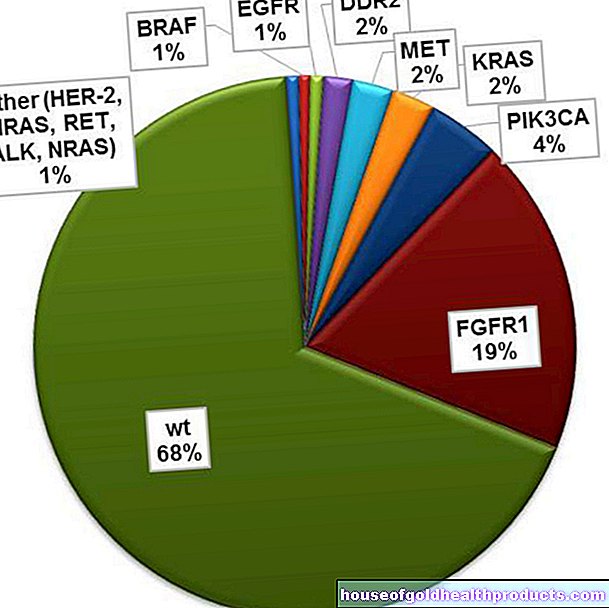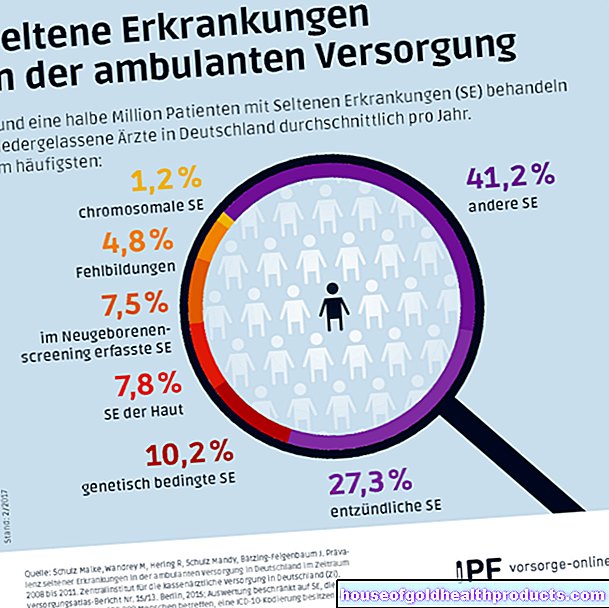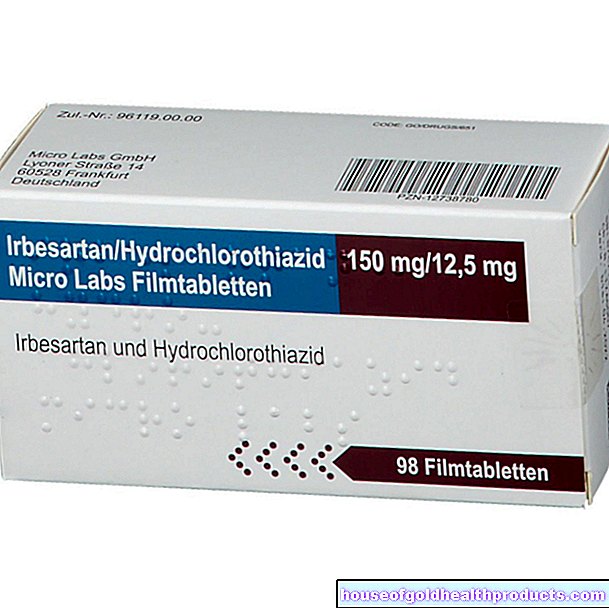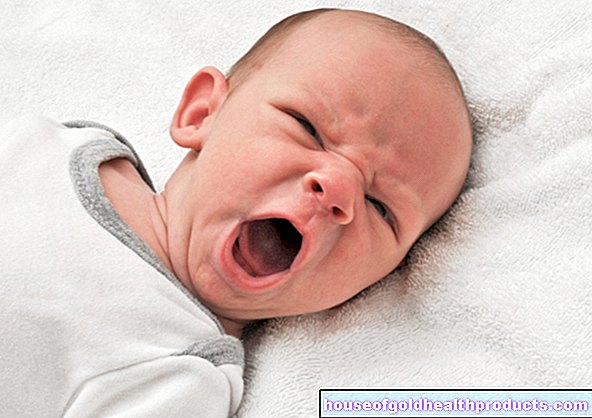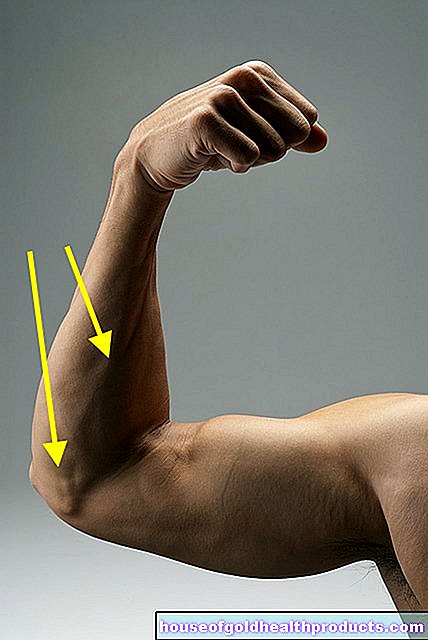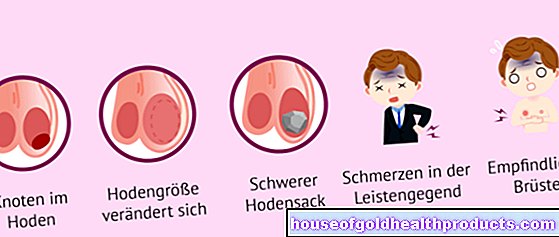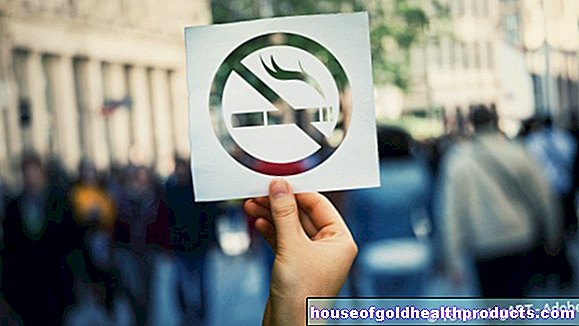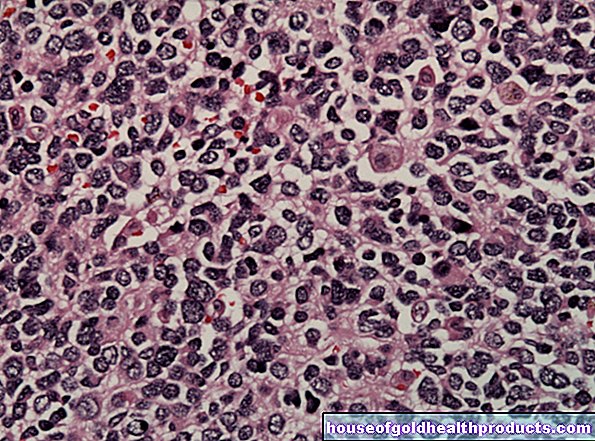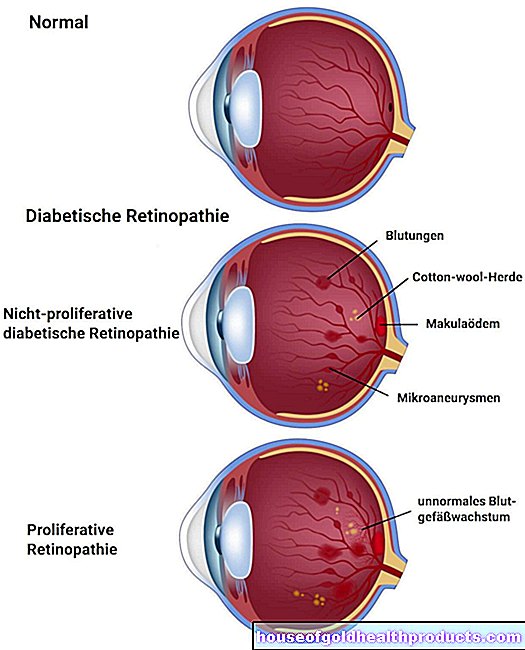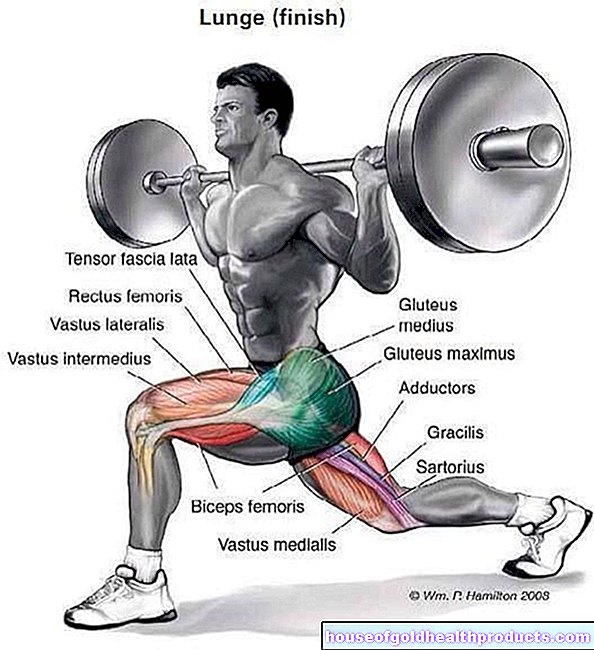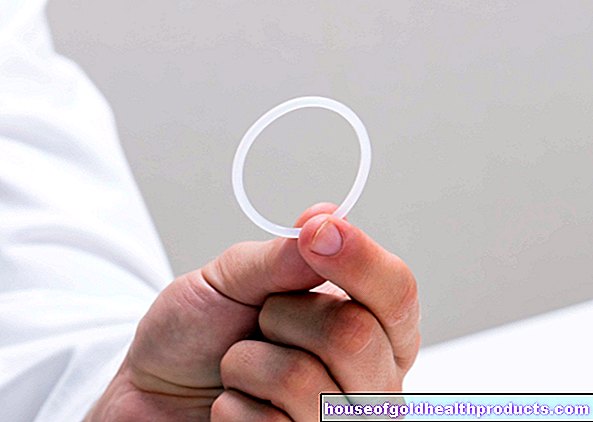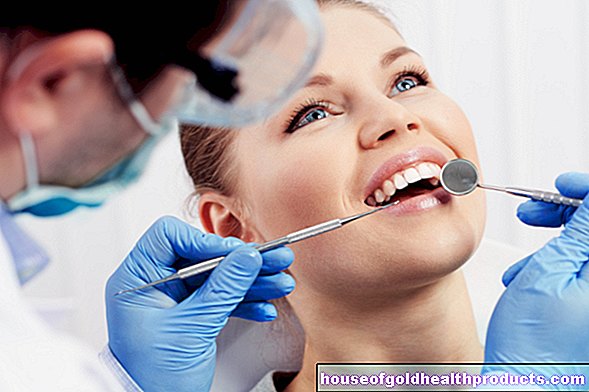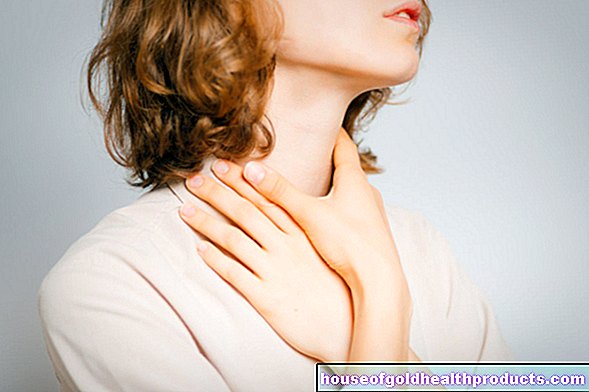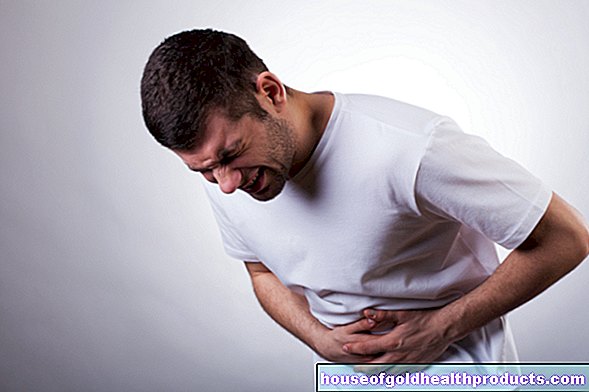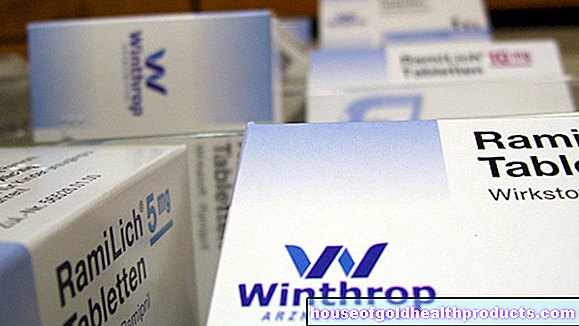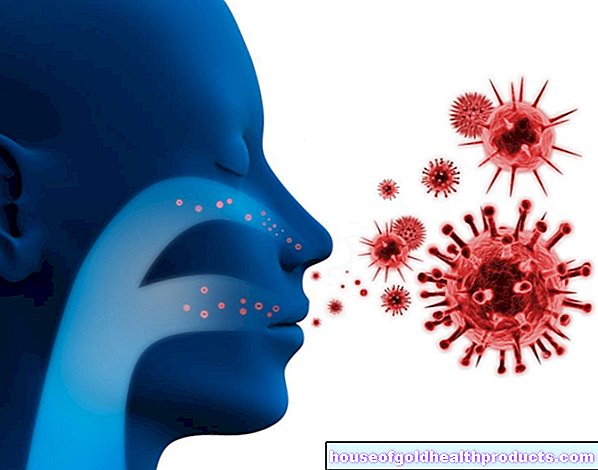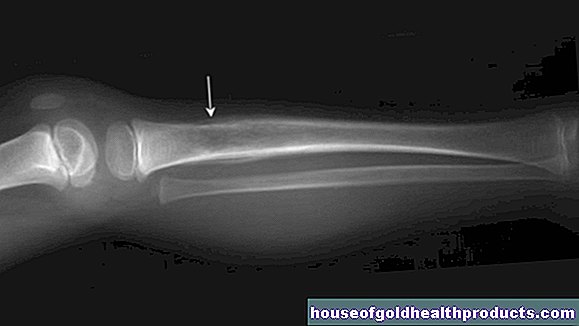Polydipsia
Hanna Rutkowski is a freelance writer for the medical team.
More about the experts All content is checked by medical journalists.Polydipsia translates as "much thirst". Accordingly, those affected drink a lot and then usually excrete more urine. The strong thirst can be a sign of a physical illness such as diabetes mellitus. Find out what other causes of polydipsia, when you should see a doctor, and how polydipsia is treated, here.

Brief overview
- What is polydipsia? Excessive thirst, often a symptom of an underlying medical condition
- Causes: e.g. severe fluid loss due to vomiting, diarrhea or sweating, fever, diabetes mellitus, diabetes insipidus, malfunction of the thyroid or kidney, psychological factors, certain medications
- How are polydipsia and diabetes related? Depending on the type of diabetes, either the increased sugar concentration in the urine triggers polydipsia (diabetes mellitus) or a deficiency or lack of effectiveness of the hormone ADH (diabetes insipidus).
- When to the doctor if the strong feeling of thirst persists for days and / or is accompanied by other symptoms (frequent urination, weight loss, etc.).
- What to do with polydipsia Depending on the cause, e.g. drink a lot and compensate for loss of electrolytes (in the case of profuse sweating or diarrhea), treatment of the underlying disease
Polydipsia: definition
Thirst is a natural and vital signal that the body needs more fluids - so we should have a drink. to keep the fluid balance in balance.
The situation is different with polydipsia: Doctors understand it to be an excessively increased feeling of thirst. It is usually a sign of illness and often occurs together with polyuria - i.e. increased excretion of water. This can lead to an alarming loss of fluid in the body.
This is how thirst arises
The thirst center is located in the brain, more precisely in the hypothalamus. There, specialized "measuring sensors" monitor the amount of fluid in the body (via the blood volume) and the exact concentration of electrolytes (such as sodium and potassium). A feeling of thirst is now triggered when:
- the "water level" in the body drops by at least half a percent (e.g. during strenuous exercise) or
- the concentration of blood salts such as sodium is increased (e.g. by consuming a bag of chips), so that a "dilution" is necessary.
Hormones are involved in regulating the fluid balance. One of these important messenger substances is ADH (antidiuretic hormone):
When there is a lack of fluid, the diencephalon secretes ADH. It reaches the kidneys via the bloodstream and causes them to hold back urine - so that the body does not lose more fluid. The little urine that comes out is highly concentrated and dark yellow.
When the hypothalamus is damaged, as well as in old age, the feeling of thirst is often lost. Those affected then drink far too little, so that the fluid content in the body can drop sharply. Such drying out (dehydration, in extreme cases: desiccosis) can lead to death within a few days!
Polydipsia: causes and possible diseases
Polydipsia can have different causes, for example:
- Thyroid diseases: The overactive thyroid gland (hyperthyroidism) should be mentioned here. The body produces too many thyroid hormones, which means that the metabolism runs at full speed. Common symptoms: unwanted weight loss despite a good appetite, nervousness, insomnia, profuse sweating and polydipsia.
- Cushing's syndrome: Here, an excess of the hormone cortisol causes symptoms such as full-fledged face, trunk obesity (massive stomach, slim arms and legs), high blood sugar level with polydipsia and polyuria, acne, muscle weakness, high blood pressure and water retention in the tissue (edema).
- Hypercalcemia (excess calcium in the blood): Possible causes are, for example, a disease of the parathyroid gland (hyperparathyroidism), malignant tumors and underactive adrenal cortex. Hypercalcemia can cause polyuria and polydipsia, among other things.
- Kidney diseases: Changes in the kidney tissue caused by inflammation or tumors can lead to abnormally increased urine excretion or diabetes insipidus (see below).
- Medicines: As a side effect, some medicinal substances increase thirst. These include, above all, water tablets (diuretics). Taking the antidepressant lithium can also initially trigger polydipsia.
- Psychological causes: In certain forms of obsessive-compulsive behavior and schizophrenia, but also at the beginning of anorexia, those affected often drink large amounts of fluids. However, they do not suffer from an increased feeling of thirst, which means that there is no physical cause for the increased drinking.
- Fever: When the body temperature rises (due to various infections), the body loses more fluid, which often triggers a strong feeling of thirst.
- Diarrhea and vomiting: In the case of severe vomiting and / or diarrhea, the body can lose a lot of fluid and dry out quickly. The motto here is then: drink, drink, drink! Otherwise it can quickly become (life) dangerous!
- Brain damage: With certain brain damage, thirst regulation or the release of the hormone ADH can be disturbed. As a result, drinking behavior can change, for example in the event of a traumatic brain injury, cerebral hemorrhage, crushing of the brain, cysts, tumors or inflammation in the area of the hypothalamus or pituitary gland, as well as after brain operations.
Above all, however, polydipsia can occur in diabetes!
Connection between polydipsia and diabetes
A pathologically increased feeling of thirst and the associated excessive intake of fluids are often symptoms of diabetes mellitus (diabetes) and diabetes insipidus (urinary urgency).
Diabetes mellitus
Regardless of whether diabetes mellitus type 1 (congenital) or type 2 (acquired) - the effects are practically the same: the high-energy blood sugar can only be insufficiently absorbed by the body's cells. The blood sugar level is abnormally high, which is why the body tries to excrete the large amount of sugar in the urine - sugar binds a lot of water, so that those affected excrete a lot of urine (polyuria), which also tastes sweet. In addition, the high blood sugar level triggers a strong thirst in diabetics (polydipsia).
Diabetes insipidus
As mentioned above, the antidiuretic hormone (ADH) is important for regulating the water balance. However, if there is a deficiency in ADH or if the kidneys do not respond adequately to the hormone (e.g. due to kidney disease), those affected excrete excessive urine (polyuria) - more than three liters a day! In addition, those affected suffer from severe thirst (polydipsia).
Polydipsia: when do you need to see a doctor?
Adults usually drink around two liters a day. Sometimes the need for liquid is also higher, for example during exercise or after a very salty meal. Even when temperatures rise in summer, it's not uncommon for people to drink more. An increased feeling of thirst does not always require a doctor's visit immediately.
However, if you feel very thirsty for days and drink excessive fluids and / or the following symptoms occur, you should seek medical advice:
- Weight loss
- frequent and increased urination
Polydipsia: what does the doctor do?
The doctor must first clarify the cause of the polydipsia. To do this, he will first collect your medical history in conversation with you (anamnesis). For example, he asks:
- How long have you been feeling very thirsty?
- How much do you drink a day?
- What drinks do you have?
- What medications are you taking?
- Do you have any other symptoms such as fever, diarrhea, or vomiting?
The subsequent physical examination includes, among other things, a blood pressure measurement and a blood draw. During the blood test, among other things, attention is paid to blood sugar levels and the amount of different electrolytes. A urine test is also important, in which the sugar concentration in the urine is measured - a lot of sugar in the urine indicates diabetes mellitus.
If diabetes insipidus is suspected, the doctor can make a so-called "thirst test": You are not allowed to eat or drink for a period of several hours. The doctor will observe your physical reaction to thirst and take your body weight and various blood values every hour.
A "thirst attempt" is not exactly pleasant for those affected, as an almost unbearable feeling of thirst arises. In addition, this examination does not necessarily allow conclusions to be drawn about the cause of the polydipsia. That is why in 2018 scientists developed a test that is said to be more suitable: It determines whether the hormone ADH is no longer sufficiently formed or no longer works sufficiently in the kidneys, or whether a disorder of thirst perception is the basis of polydipsia. This test has already been used at Leipzig University Medicine, for example.
Once the cause of the polydipsia is determined, the doctor can suggest appropriate treatment. In the case of diabetes, this includes, for example, regular physical activity, a healthy diet, reducing excess weight and, if necessary, medication to lower blood sugar.
Polydipsia: you can do that yourself
Usually the need to drink increases because the body excretes more water - for example in the case of a febrile illness or a gastrointestinal infection with vomiting and / or diarrhea. Since the body also loses minerals (electrolytes) with the urine, you should compensate for this deficit as quickly as possible. Hence:
- drink a lot
- Replace lost electrolytes, for example with a water-salt-sugar solution in the right composition (e.g. ready-made electrolyte solution from the pharmacy)
Prevent strong thirst
You can prevent non-disease-related polydipsia with the following tips:
- Alcohol only in combination with water: Alcohol removes water from the body. After a wet and happy night, you often wake up in the morning with a strong thirst and headache. As a preventive measure, it is best to drink a glass of water after every glass of alcohol. This balances out the liquid level again.
- Caffeine in moderation: The caffeine in coffee or black tea has a diuretic effect and inhibits ADH production. The body gets used to caffeine, so that regular consumption no longer deprives excessive amounts of water. At best, you should drink a glass of water with every cup of coffee - and, according to an Australian study, less than six cups a day. Otherwise the blood pressure rises and with it the risk of cardiovascular diseases.
- Avoid sweet drinks: Sweet fruit juices and lemonades often do not quench your thirst, but instead increase the feeling of thirst. Therefore, you should rather drink water, fruit juice spritzers or unsweetened fruit tea.
- Drink enough during exercise and in the heat: When exercising and at high temperatures in summer, you should pay particular attention to ensuring that you are drinking enough fluids. Experts recommend 1.5 to three liters per day, depending on body weight and sweat loss.
- Mixing salt into the water: In hot countries, fresh juices are often mixed with a small pinch of salt - this not only quenches thirst, but also brings the lost electrolytes back into balance. So polydipsia has little chance.
